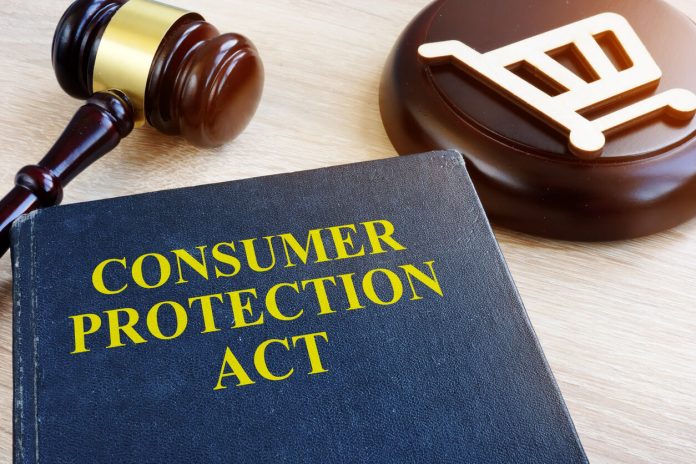

This article is written by Kriti Saxena, pursuing Certificate Course in Consumer Litigation from LawSikho. The article has been edited by Prashant Baviskar (Associate, LawSikho) and Smriti Katiyar (Associate, LawSikho).
Table of Contents
Anybody who uses certain goods or services, for self-consumption, is a consumer. “Consumers” does not include, anyone who avails of goods or service free of charge, purchases for commercial purposes, or someone who avails of service as an employer under a contract of service. With the developing technology platforms, and various sources of supply, consumers are relying more on e-commerce and digitalization. The ever-increasing demands and options have opened gates to frauds, unfair trade practices, and deficiency of services to the consumers. Thus, to safeguard the consumers against such acts, certain laws were formulated by the government. Out of these, one crucial Act to protect the interest of innocent consumers is the “Consumer Protection Act, 1986”. This Act did not include the transactions related to e-commerce but owing to the growth of these platforms, the new Act i.e. the consumer protection Act of 2019 was formulated which came into force on 20 th July, 2020.
Section 10 of the new Act provides authority to the Central Government to incorporate the Central Consumer Protection Authority (CCPA) which aims to protect the consumers from fraud, unfair trade practices, misleading advertisements and violation of their rights as a consumer. CCPA can take cognizance of a consumer complaint either on its own i.e. suo moto, or when directed by the central government or on the receipt of consumer complaint by CCPA.

The new Act ensures that consumers are heard and that their complaints are duly redressed at appropriate forums. A consumer can either himself file a complaint or through a legal representative.
Though consumers are the main drivers of trade and commerce. Frauds committed on a consumer are not new. There are other legislation and acts that protect the rights of innocent consumers such as, The Indian Contract Act, the Sales of Goods Act, the Civil Procedure Code, etc. However, their execution is not done appropriately which makes customers hesitant about filing complaints. The Consumer Protection Act, 1986, was a marvellous achievement on the part of the government to this effect. The Act was passed to protect the rights and interests of consumers. The Act directs the formation of statutory bodies known as Consumer Courts to specifically deal with suits filed by consumers. This is a vital step under this Act, to reduce the expense, time and burden on the consumer seeking appropriate redressal. For this purpose, consumer courts are instituted at the three levels i.e. district, state and national levels.
The law provides for the establishment of Councils to educate and promote awareness among consumers against the dishonest acts of traders or sellers.
A complaint can be filed under the act in cases of- unfair trade practices, restrictive trade practices, and unfair contract, the higher price charged by the trader, goods that are hazardous to life and property are sold without following the standards, etc.
The consumer protection act, 2019 replaced the Act of 1986 to adapt to the changing environment. The new Act includes, in its ambit, e-commerce transactions. The act has also modified the definition of the complainant to include a parent or legal guardian in case the complainant is a minor.
Certain significant amendments have been brought by the 2019 Act, with respect to the Consumer Redressal Forums, also. These are:-
The complaints are registered at appropriate forums based on the limit of pecuniary jurisdiction.
These modifications have widened the scope of pecuniary jurisdiction to a much larger extent. Along with the above-mentioned changes, the 2019 Act has also changed the means for the determination of the pecuniary jurisdiction on the basis of the valuation of goods and services payable as consideration, unlike the 1986 Act where, pecuniary jurisdiction was determined by the value of the goods and services as well as the compensation sought, therefore not escalating the amount of compensation claimed to bring the complaint within the pecuniary jurisdiction of State or National Commission.
For determining the value of the complaint, the aggregate value of the goods or services and compensation claimed by the complainant. This was held in the case of “M/s Pyaridevi Chabiraj Steels Pvt. Ltd. v. National Insurance Corporation Ltd.
To this effect, the new act incorporates the establishment of a consumer mediation cell by the respective State Government in each district and state as well as at the national commission by the central government and be attached to the forums.
It is based on the principles of natural justice.

Each district forum would comprise of:
The state consumer dispute redressal forum, established in each state, should comprise of:

Over and above the state consumer forum, lies the national consumer dispute redressal forum. As per the Act, the forum shall comprise of:
The act provides that these appointments are to be made by the Central government on the recommendation of a selection committee constituting of:
Consumer Protection Act, 2019 is a law that protects the interests of consumers. This act was crucial to resolve a large number of pending consumer complaints in consumer courts across the country. It has ways and means to solve consumer grievances speedily.
The basic aim of the Consumer Protection Act, 2019 is to save the rights of the consumers by establishing authorities for timely and effective administration and settlement of consumers’ disputes.
Students of Lawsikho courses regularly produce writing assignments and work on practical exercises as a part of their coursework and develop themselves in real-life practical skills.
LawSikho has created a telegram group for exchanging legal knowledge, referrals, and various opportunities. You can click on this link and join:
Follow us on Instagram and subscribe to our YouTube channel for more amazing legal content.
